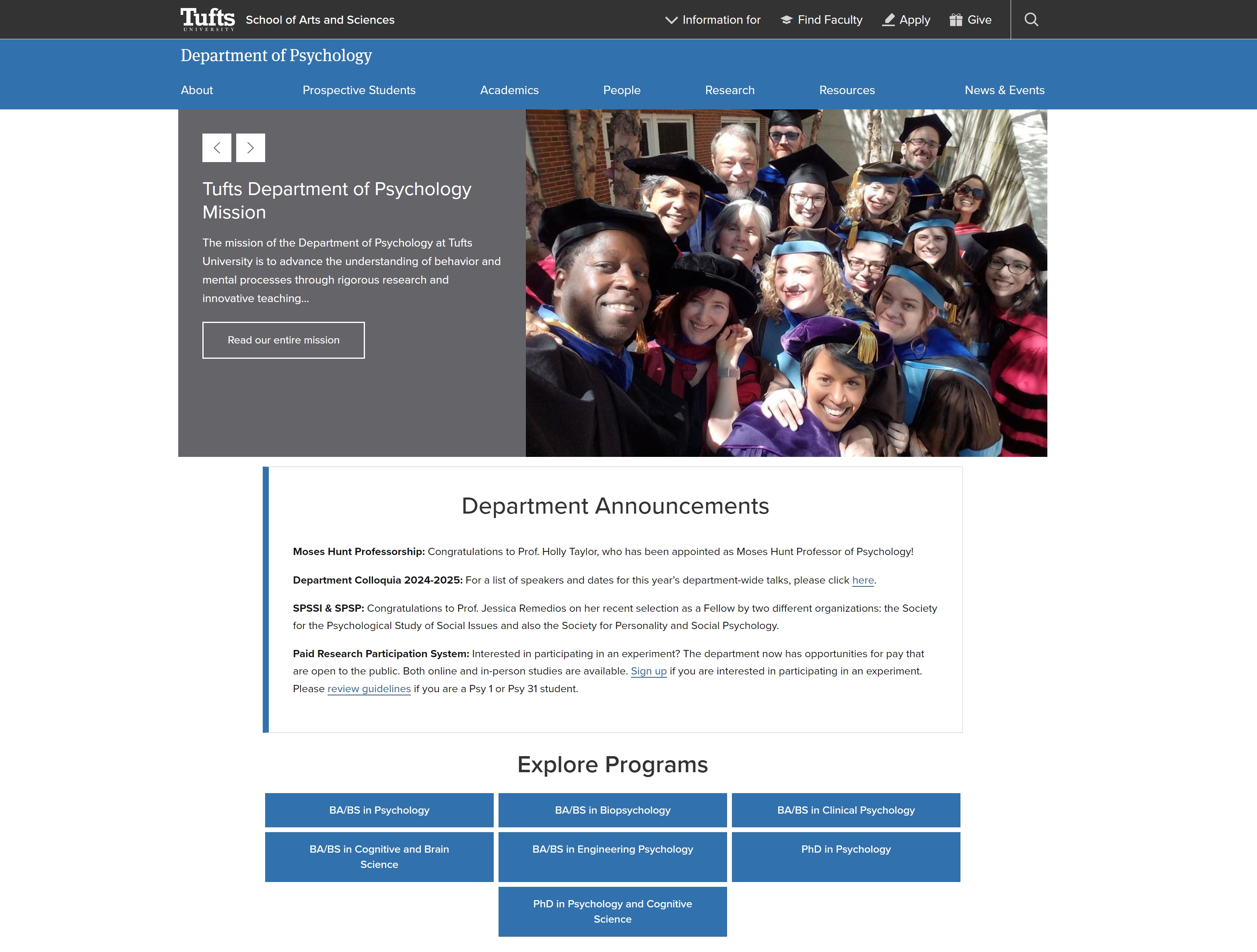
Psychological and Brain Sciences - College of Liberal Arts and Sciences - The University of Iowa
Study the science behind behavior, cognition, learning, memory, personality, and emotion at The University of Iowa. The Department of Psychological and Brain Sciences at the University of Iowa is committed to research excellence and provides outstanding training for undergraduates, graduate students, and postdocs. Develop research skills and prepare for success in various life paths.

Detailed Introduction
The University of Iowa's Department of Psychological and Brain Sciences is known for its commitment to research and professional training. The department offers a variety of research opportunities and has been recognized for its work in areas such as REM sleep research and the development of virtual reality training for lifeguards. With a strong focus on innovation and interdisciplinary collaboration, the department prepares students for successful careers in psychology and related fields.
MoreUniversity

Tufts University Department of Psychology
The Department of Psychology at Tufts University conducts cutting-edge research aimed at understanding the causes and consequences of mental processes and behavior. Our work addresses social, cognitive, and neural levels of analysis. We are innovative and interdisciplinary in our approach and emphasize understanding phenomena that have a direct impact on society. Scientists at all levels - faculty, postdoctoral trainees, and graduate and undergraduate students - engage in collaborative scholarship and critical thinking in the classroom and in the laboratory. This synthesis, between research and teaching, positions us to ask and answer fundamental questions while also enriching our students' understanding of psychology.

Department of Psychology - University of Potsdam
Established in 1992, the Department of Psychology at the University of Potsdam is one of Germany's youngest, offering a broad spectrum of teaching and research across thirteen professorships. The department encompasses various fields, including General and Biological Psychology, Industrial and Organizational Psychology, Counseling Psychology, Emotional and Biopsychology, Developmental Psychology, Clinical Psychology and Psychotherapy, Cognitive Neuroscience, Educational Psychology and Social Psychology, Differential Psychology and Psychological Diagnostics, Human Science Research Methods, and Cognitive Science.

The Indian Psychology Institute
The aim of the Indian Psychology Institute is to explore and develop what the Indian traditions can contribute to modern psychology in terms of theoretical models, specific insights, reliable methods, practical applications, and avenues for future research.The Indian Psychology Institute wants to help with the development of new approaches to psychology based on Indian philosophy, yoga and a life-affirming spirituality. It holds that such approaches to psychology will not only be more in harmony with the Indian ethos, but that they can make a crucial contribution to the evolving global civilization.